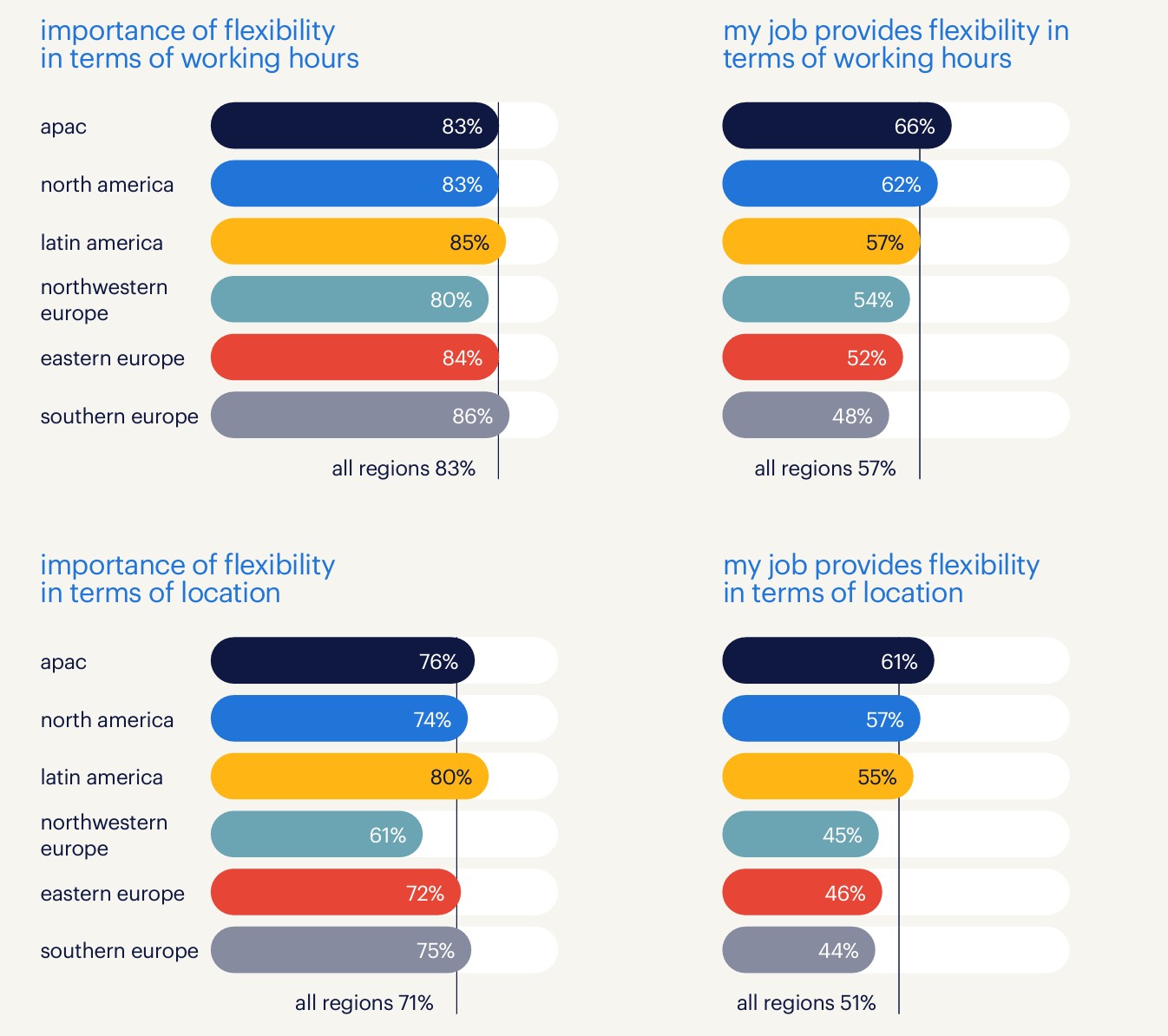
In a groundbreaking shift, employees worldwide now value work-life balance more than salary, according to a comprehensive international survey by Randstad. This marks the first time in the survey's 22-year history that maintaining balance between professional and personal life has outranked compensation as workers' primary motivation.
The survey, which gathered responses from 26,000 workers across 35 countries, revealed that 83% of respondents ranked work-life balance as their top priority when considering current or future employment, slightly ahead of salary at 82%.
This transformation in workplace priorities has led to concrete actions from employees. Nearly half (45%) of workers reported campaigning for better working conditions, while 31% left positions that didn't offer adequate flexible working arrangements. The trend is particularly pronounced among younger workers, with 74% of Generation Z prioritizing work-life balance compared to 68% focusing on pay.
The research also highlighted increasing demands for workplace flexibility. The number of employees reporting flexible working hours rose to 65%, while location flexibility climbed to 60%. Almost two-thirds of workers now say they can choose their work intensity, indicating a broader normalization of flexible working arrangements.
Despite the rise in remote and hybrid work, employees still crave professional connections. An overwhelming 83% of respondents want their workplace to provide a sense of community. This desire for belonging has become so strong that 55% of workers would consider leaving their jobs if they don't feel connected to their organization - a notable increase from 37% the previous year.
The findings suggest that organizations must adapt to these evolving expectations to retain talent. "Work today is about more than just a pay cheque," noted Sander van 't Noordende, Randstad's CEO. "Talent globally are looking for workplaces that align with their personal values, aspirations and circumstances."
This shift in workplace dynamics appears to be a lasting legacy of the COVID-19 pandemic, which forced many organizations to reimagine traditional work arrangements. The survey indicates that these changes have created a new baseline for employee expectations, even in the face of economic challenges and technological advancement.